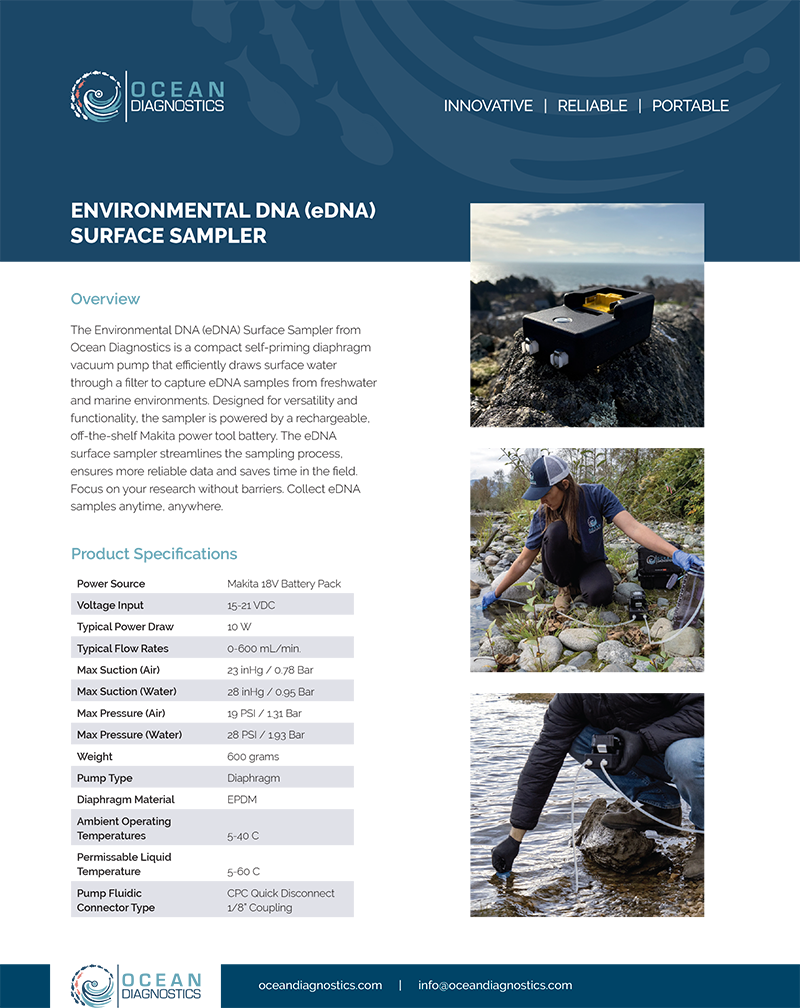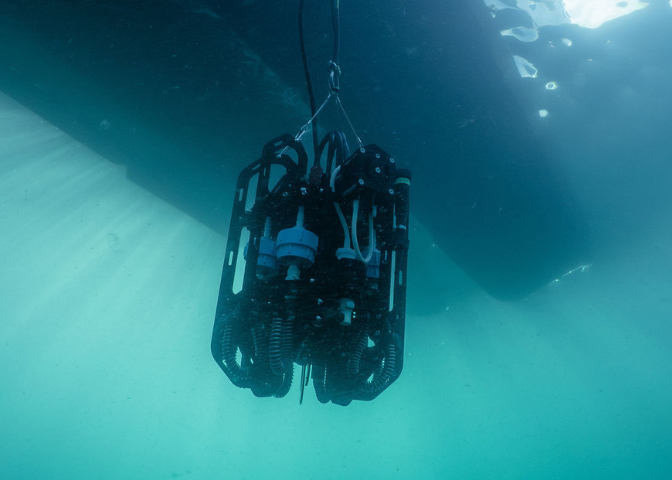Environmental DNA (eDNA) Surface Sampler
Research without boundaries.
Explore the next generation of eDNA sampling technology
Ocean Diagnostics' portable and scalable self-priming vacuum pump collects filtered eDNA surface samples in minutes.
Subscribe for product updates!
.png)
Experience the freedom and versatility to collect reliable eDNA samples anytime, anywhere
Designed for efficiency, this small and rugged sampler can accompany you wherever your curiosity takes you.
Collect more field samples in less time.
With a self-priming pump and rechargeable battery, you can collect more field samples without time-consuming and manual filtration processes.
.png)
.png?width=750&height=500&name=OceanDiagnotics_eDNA_SurfaceSampler-1(web).png)
Features
How It Works
The compact self-priming diaphragm vacuum pump efficiently draws surface water through a filter to capture eDNA samples from freshwater and marine environments. Designed for versatility and functionality, the sampler is powered by a rechargeable, off-the-shelf Makita power tool battery so you can collect more field samples in less time.
Watch the video to see it in action!
Applications
The eDNA Surface Sampler can be used by researchers or community scientists to collect field samples for many purposes, including:
- Biodiversity monitoring
Invasive species detection - Conservation genetics
- Compliance monitoring
- Endangered species tracking
- Water quality assessments
- Environmental impact assessments
- Restoration monitoring
- Early detection of pathogens and parasites
- Citizen science
%20(1)-1.png)
Download our previously recorded webinar and product demo!
What Our Customers Say

“The Sampler is exactly what I was looking for: Compact, reliable and easy to use from a boat. One of my favourite parts about this system is that it’s compatible with a wide range of filter types, making it easy to tailor to different project needs. It’s streamlined the sampling process in a way I couldn’t have done otherwise."
Amy Migneault
PhD Researcher | University of Victoria
“I really like the simplicity and compact nature of the Sampler. You can get out into the middle of a wetland, stick your filter over the side, hit the button, and sit there writing in your field notebook.”
John Hagan
The Northwest Indian Fisheries Commission
“There’s no way we could have done this at this scale using traditional methods. It's very simple to use, light—which is especially key for remote areas—and one button.”
Francesco Janzen
The Canadian Nature Museum
Supporting SDG 14
Pollution, invasive species, climate change and other human activities threaten biodiversity and life below water (SDG 14). Environmental DNA (eDNA) sampling is a simple, cost-effective and non-destructive method to measure biodiversity loss.
With eDNA surface sampling technology, researchers and community scientists alike can contribute the data needed to inform and monitor solutions.


